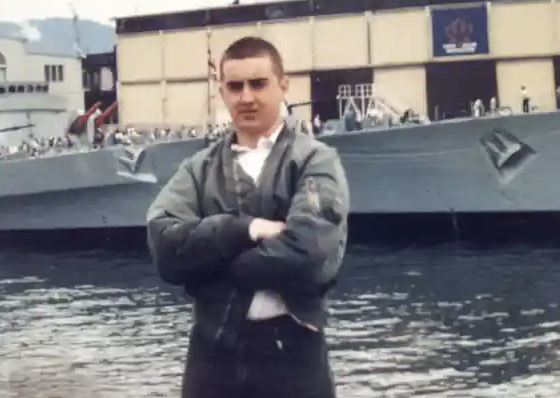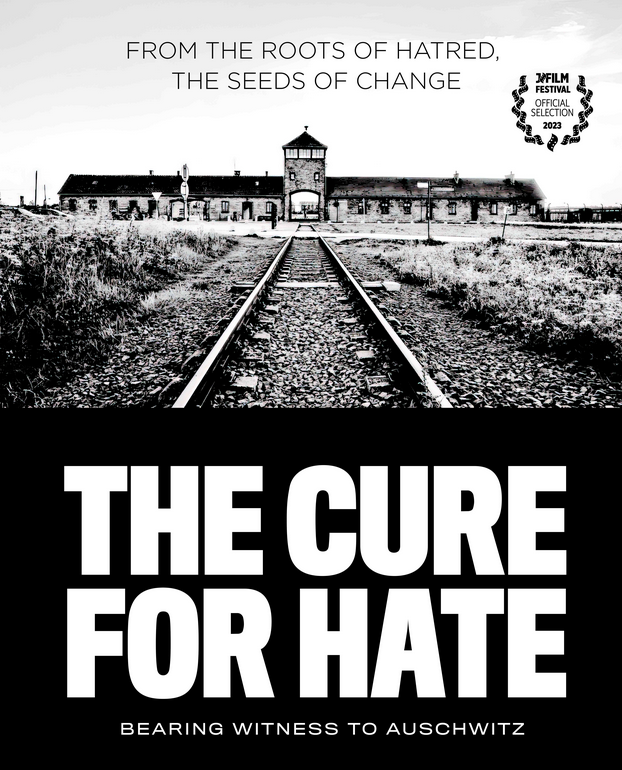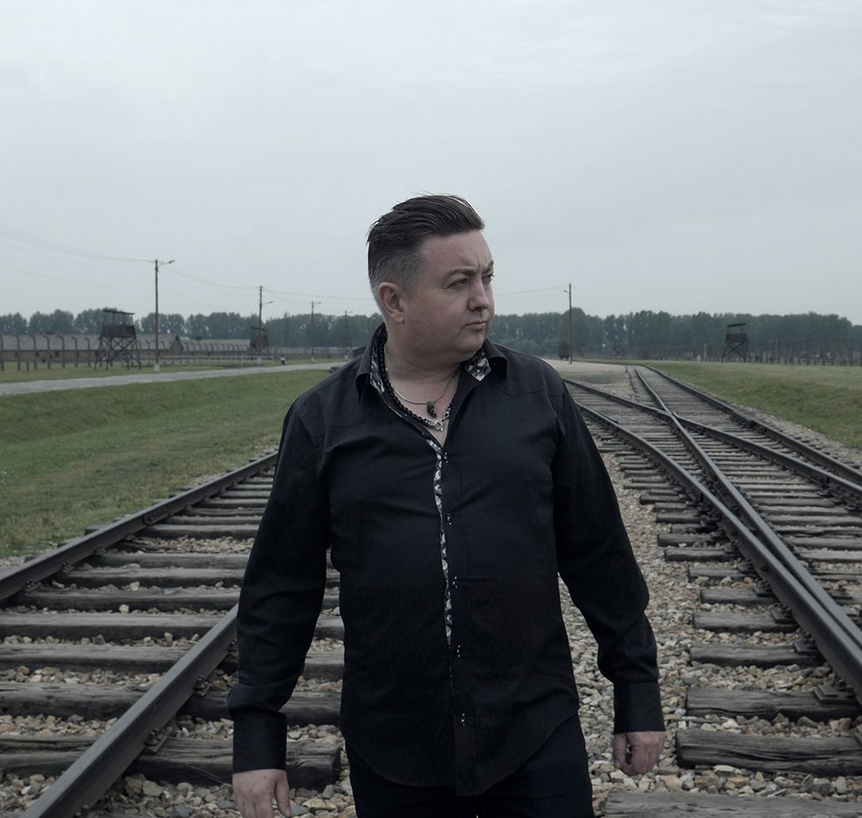People Can Change – Confessions of a Neo-Nazi
By Sue Weston and Susan Rosenbluth – Two Sues On The Aisle
What is the attraction for hate-mongering groups? Tony McAleer, formerly a leader in the Canadian White Aryan Resistance (WAR) shares his story in the documentary The Cure for Hate: Bearing Witness To Auschwitz as a first step in breaking the cycle of hate. McAleer was a white supremacist, a holocaust denier, and a skinhead, who devoted over 20 years to the past behind. He is now a founder of an anti-hate activist group Life After Hate, a support network similar to AA providing safe spaces for ‘formers’, people who want to transition away from violent extremist movements.
McAleer’s story is simple, honest, and powerful. He explains how he was drawn to the white power movement of the 1980s. Acknowledging his past actions becomes his way of atoning for them. Becoming a father was his turning point, causing him to gradually pull away from these radical groups.
The movie is part of a larger program, The Cure For Hate Impact Campaign, focused on discouraging people from joining extremist groups. During 2023 and 2024 they will be engaging with secondary schools & select communities across the United States. Their goal is to provide education about the Holocaust and genocide in the modern era, explain the roots of hatred, and provide tools to counter “othering” tendencies and stop its spread.
McAleer cautions that hate is not benign – and when left unchecked can lead to monstrous and inhumane acts of cruelty and violence.
Attend the screening of THE CURE FOR HATE: BEARING WITNESS TO AUSCHWITZ Directed by Peter Hutchison – April 25 (7 PM) (live or virtual)
The Need for Acceptance
The need for acceptance draws people to violent extremist movements. A University of Maryland study suggests ‘emotional trauma’ causes a feeling of disconnection. For McAleer growing up with a distant father led to his disruptive behavior in school. The school reacted with hostility. He was bullied by students and teachers, causing his trauma and making him feel worthless. “Trauma leaves us with a belief system that forms part of our identity. I call it toxic shame. We pick up the belief that we aren’t lovable enough, smart enough, that we’re powerless and weak.”
Extremist groups provide a sense of belonging and power. “They’re street kids. They’re troubled youth. The need to be involved in something meaningful comes before the ideology.” For McAleer, being a skinhead began with music “Within the punk scene we had notoriety and people were afraid of us. A false sense of power comes with that.” This led to fights, which conveyed a sense of power and control.
The rhetoric created a “dehumanization” which allows for violent behaviors, and he slowly lost the ability to connect and feel compassion for those different from him. “I traded it for acceptance until I had nothing left”.
Becoming a father changed everything. McAleer gained a new acceptance which allowed him the emotional distance to see the white power movement for what it was: “completely dysfunctional. Wounded people, alcoholism, violence. I can’t think of a single person who experienced joy on a daily basis.”
Then came the personal growth, working with therapist and mentor, Dov Baron, McAleer objectively evaluated his past. He allowed himself to feel sorrow and shame. He suggests that his denial of the Holocaust was actually his denial of both their pain and his own, allowing him to understand the tragedy of the Shoah.
Facing The Truth
Throughout the film, McAleer repeats his need to do teshuvah, repenting for his actions. He is acutely aware and deeply ashamed of the violence he instigated. He visits Auschwitz to bear witness to the inconceivable ravages of the Holocaust and is moved by what he sees.
Visiting the concentration camps deepened his commitment to prevent the rise of extremist politics. The film, directed by Peter Hutchison, includes historical footage of the Nazis, mixed with videos of current extremist rallies, as a connection, and warning “In this time of rising anti-Semitism, this film serves as both a memory and a warning of what hate can lead to if left unchecked”.
The Cure for Hate explores the conditions that led to the rise of fascism in 1930s Europe with parallels conditions today, a democratic election, the rise of hatred, people’s need to belong, and the seductive influence of power. Auschwitz and Birkenau serve as stark monuments to remind us of the result of violence and hate.
****
Two Sues on the Aisle bases its ratings on how many challahs (1-5) it pays to buy (rather than make) in order to see the play, show, film, or exhibit being reviewed.
The Cure for Hate Received a 3 Challah rating
Documentary – 84 minutes
Screening of The Cure For Hate: Bearing Witness To Auschwitz – April 25 (7 PM) (live or virtual)









